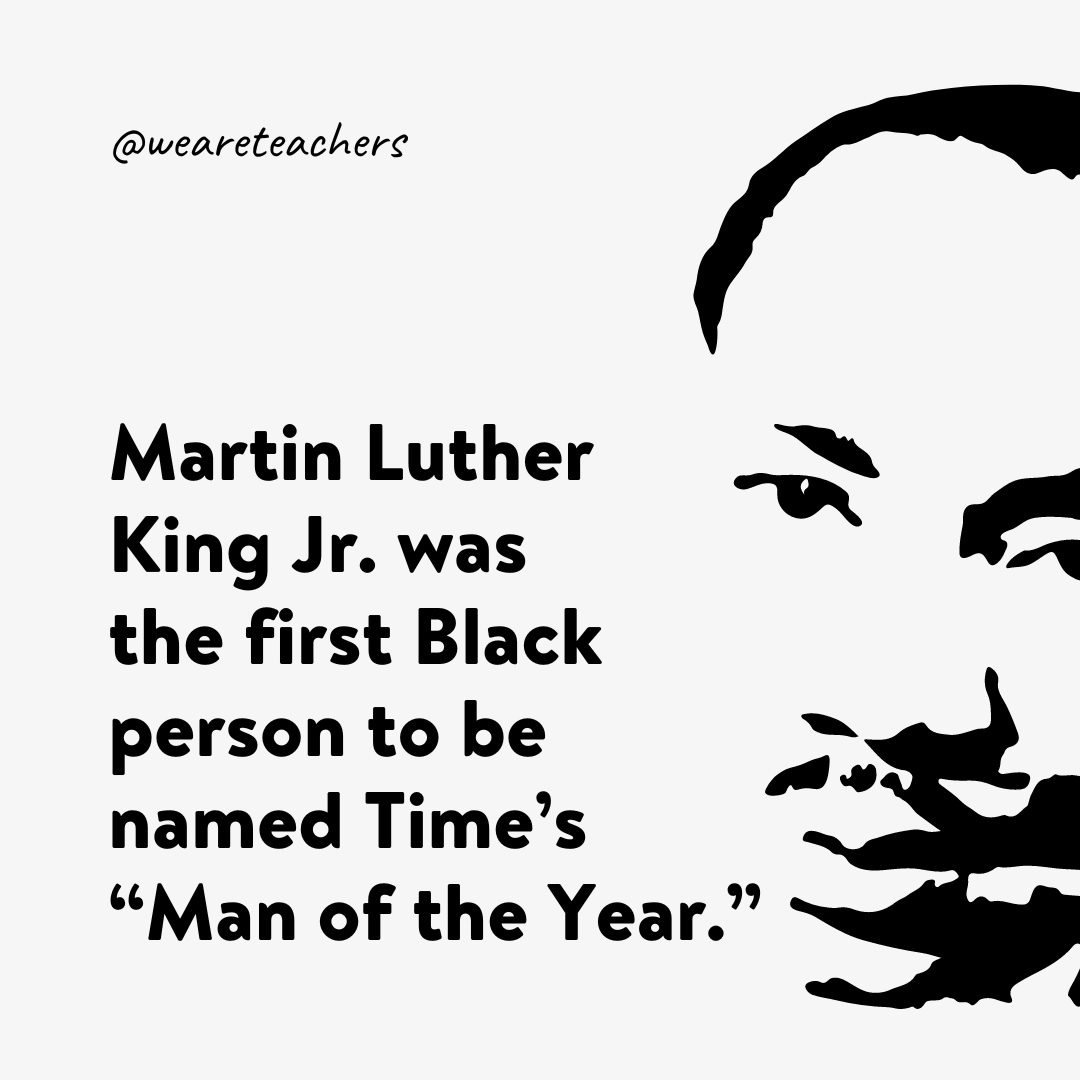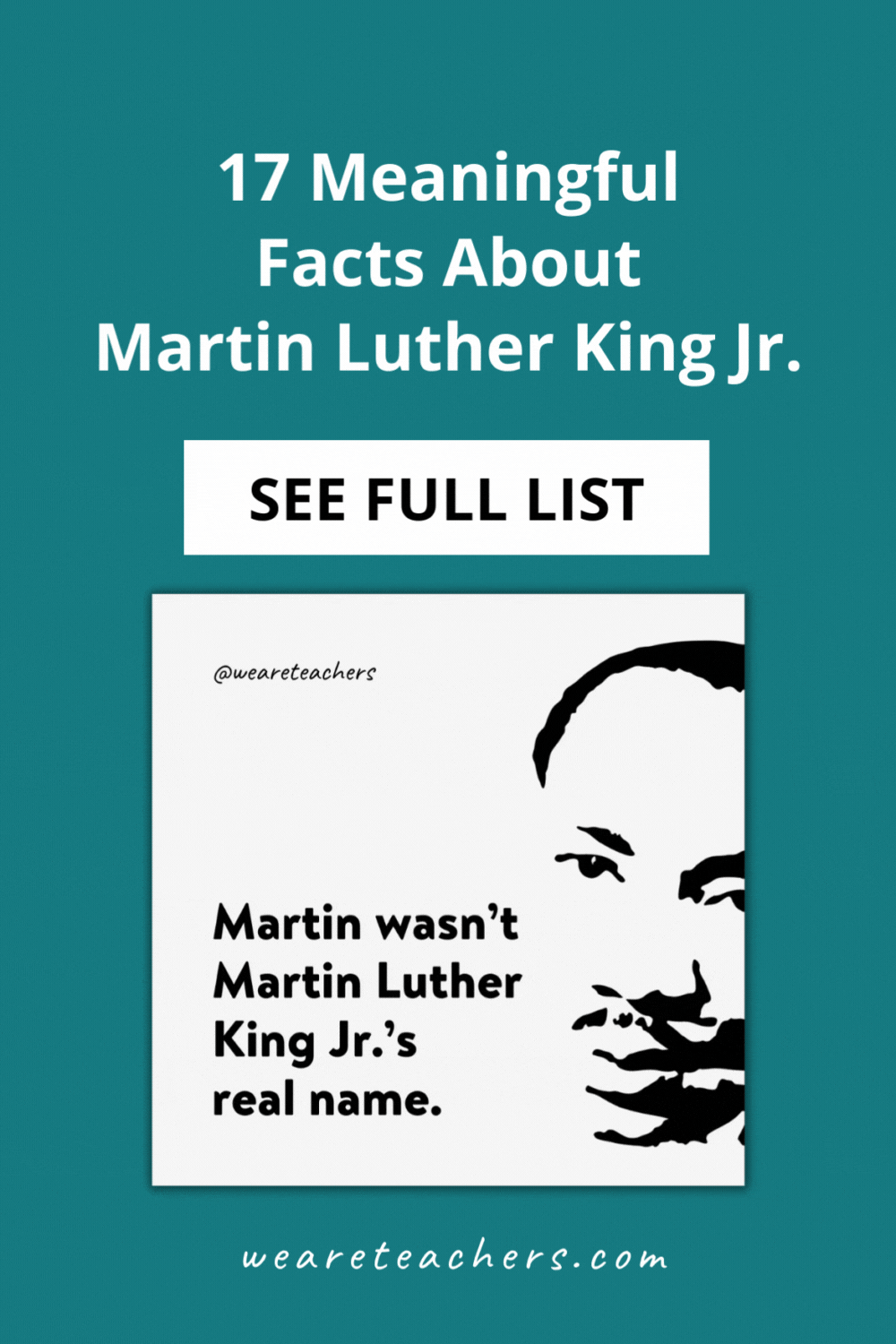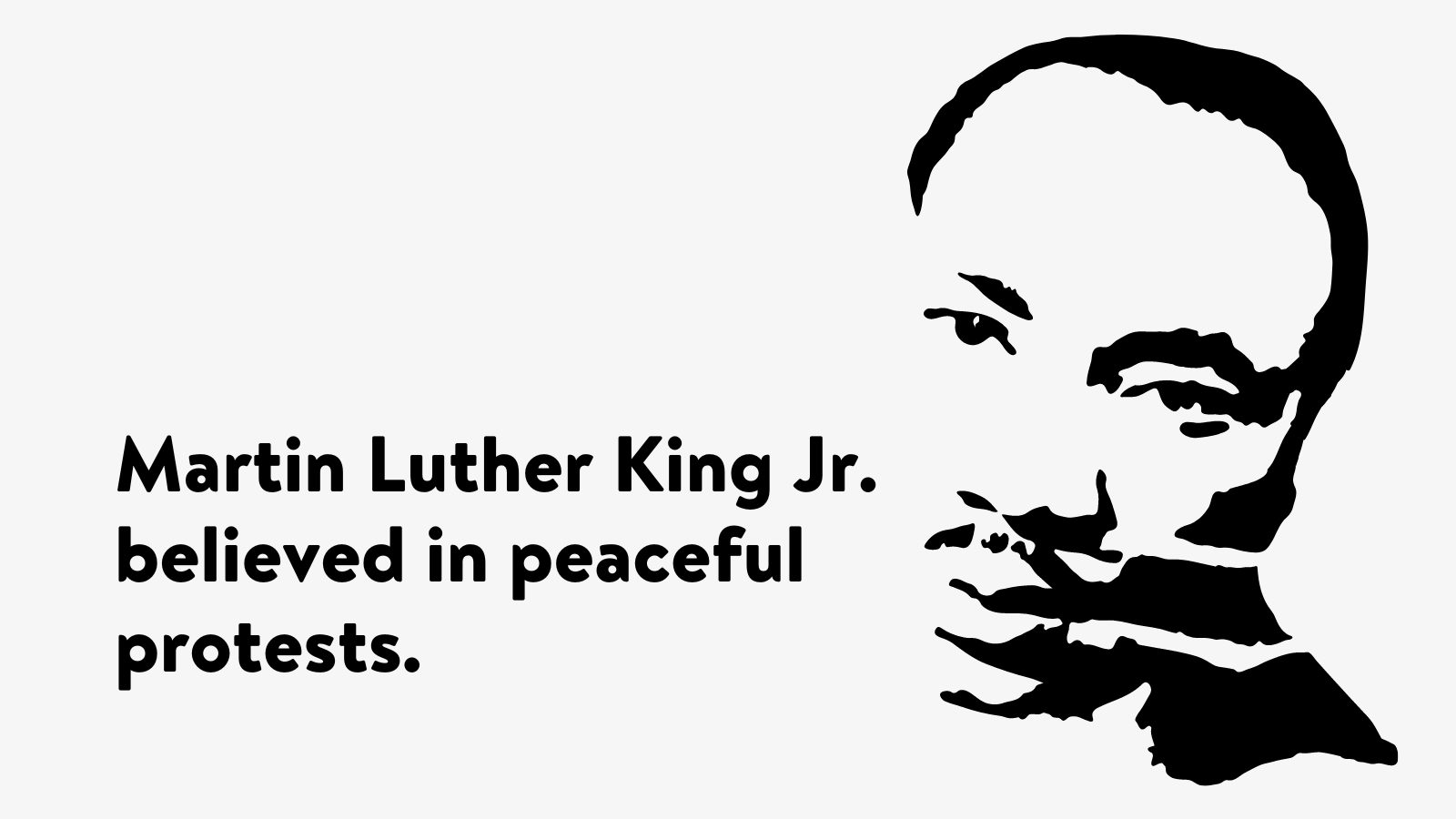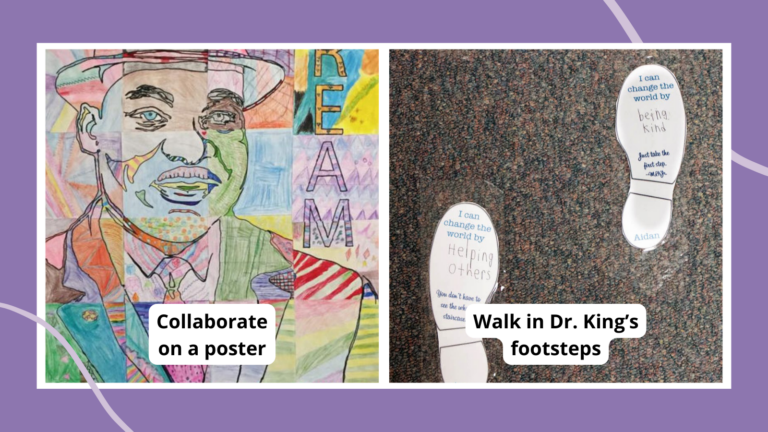We all play a role in shaping society, but some people truly change history. Martin Luther King Jr. is a perfect example. He dedicated his life to peacefully fighting racism and promoting equality during the Civil Rights Movement. His powerful words continue to resonate and are relevant today. In honor of his birthday, which is celebrated annually on the third Monday in January, here are some facts about Martin Luther King Jr. to share in the classroom.
Our Favorite Facts About Martin Luther King Jr.
Martin wasn’t Martin Luther King Jr.’s real name.

From his birth on January 15, 1929, until he was five years old, he was known as Michael King Jr. During a 1930s visit to Germany, his father, Rev. Michael King Sr., was so inspired by Protestant Reformation leader Martin Luther that he came home and legally changed his and his son’s name!
Martin Luther King Jr. first experienced segregation at just six years old.

As a child, King was told he couldn’t play with his white friend anymore because Black and white children shouldn’t be together.
Martin Luther King Jr. graduated from Morehouse College at 19.

After skipping two grades, King graduated from Washington High School in Atlanta and enrolled at Morehouse College. He earned his undergraduate degree in sociology at just 19 years old and went on to earn a doctorate from Boston University in 1955.
Martin Luther King Jr. helped organize the Montgomery bus boycott.

Rosa Parks’ arrest for refusing to give up her seat to a white man sparked outrage and led to King’s first major role in the Civil Rights Movement in 1955. He helped organize a boycott of the city’s buses, and after more than a year (381 days!), the court finally struck down the segregation law. It should be noted that, although the arrest of Rosa Parks got more attention, Claudette Colvin was actually the first to refuse to give up her seat to white passengers.
Martin Luther King Jr. was the first Black person to be named Time’s “Man of the Year.”

Following his March on Washington for Jobs and Freedom, King was recognized by Time magazine in their January 1964 issue. He also appeared on the cover in 1957 when Time published a story on his leadership during the Montgomery bus boycott.
Martin Luther King Jr. believed in peaceful protests.

After traveling to India in 1959, King met with the followers of Mahatma Gandhi, who were peacefully protesting to demand India’s independence. King’s experiences strengthened his belief in nonviolent protest. Nearly 50 years after that trip, a message recorded by King was discovered where he “emphasizes his intellectual debt to Mahatma Gandhi’s message of nonviolent social action.”
Martin Luther King Jr. organized the Southern Christian Leadership Conference in 1957.

This group is historically significant and went on to lead many nonviolent protests against segregation.
Martin Luther King Jr. gave his famous “I Have a Dream” speech in 1963.

More than 250,000 people gathered in the nation’s capital during the March on Washington to hear activists, including King, speak about the necessity for civil rights. His impassioned speech has become one of the most famous in history.
Martin Luther King Jr. was the youngest recipient of the Nobel Peace Prize.

At just 35 years old, King received the Nobel Peace Prize “for his non-violent struggle for civil rights for the Afro-American population” in 1964. He donated his $54,123 in prize money to the Southern Christian Leadership Conference to fund future protests.
Martin Luther King Jr. was jailed nearly 30 times.

In his time leading the Civil Rights Movement, King was jailed 29 times.
Martin Luther King Jr. recorded at Motown Records.

Motown Records released the album The Great March to Freedom, which featured a recording of King’s 1963 Detroit speech. King donated the royalties to the Southern Christian Leadership Conference (SCLC). Additionally, Motown acts performed at SCLC fundraisers, and the label’s founder, Berry Gordy, made a $500 donation.
Martin Luther King Jr. won a Grammy Award.

After being nominated in 1964 for Best Documentary, Spoken Word or Drama Recording (Other Than Comedy) for We Shall Overcome (The March On Washington … August 28, 1963) and in 1969 for Best Spoken Word Recording (I Have a Dream), King posthumously won for Best Spoken Word Recording at the 13th annual Grammy Awards in 1971 for Why I Oppose the War in Vietnam.
Martin Luther King Jr. loved to play pool.

During his grad school years at Crozer Theological Seminary in Chester, Pennsylvania, King developed a love for the game and continued to play for the rest of his life.
Martin Luther King Jr. helped get the Civil Rights Act of 1964 passed.

King was instrumental in getting this act passed, which outlawed several types of discrimination. Just a year later, in support of Black American voting rights, he led a march in Selma, Alabama, resulting in the Voting Rights Act of 1965 also being passed.
Martin Luther King Jr.’s birthday is a national holiday.

To honor Martin Luther King Jr., President Ronald Reagan signed a bill in 1983 creating a federal holiday. First commemorated in 1986, the third Monday in January annually commemorates King’s January 15 birthday.
Martin Luther King Jr.’s final public speech was prophetic.

The night before he was killed, King traveled to the Mason Temple Church in Memphis. He was there to support the city’s Black garbage workers, who were on strike. Many feel that the words of his final speech, “I’ve Been to the Mountaintop,” seemed to foretell his impending death.
He said, “Like anybody, I would like to live a long life. Longevity has its place. But I’m not concerned about that now … I’ve seen the Promised Land. I may not get there with you. But I want you to know tonight, that we, as a people, will get to the Promised Land. And I’m happy tonight. I’m not worried about anything. I’m not fearing any man. Mine eyes have seen the glory of the coming of the Lord.”
Martin Luther King Jr. was assassinated in 1968.

While standing on the balcony of his hotel, Martin Luther King Jr. was tragically shot and killed. James Earl Ray was convicted of his murder. Although he claimed to be innocent, Earl remained in prison until his death in 1998.
Have more facts about Martin Luther King Jr.? Share in the comments below!
Plus, check out these facts for Black History Month!


